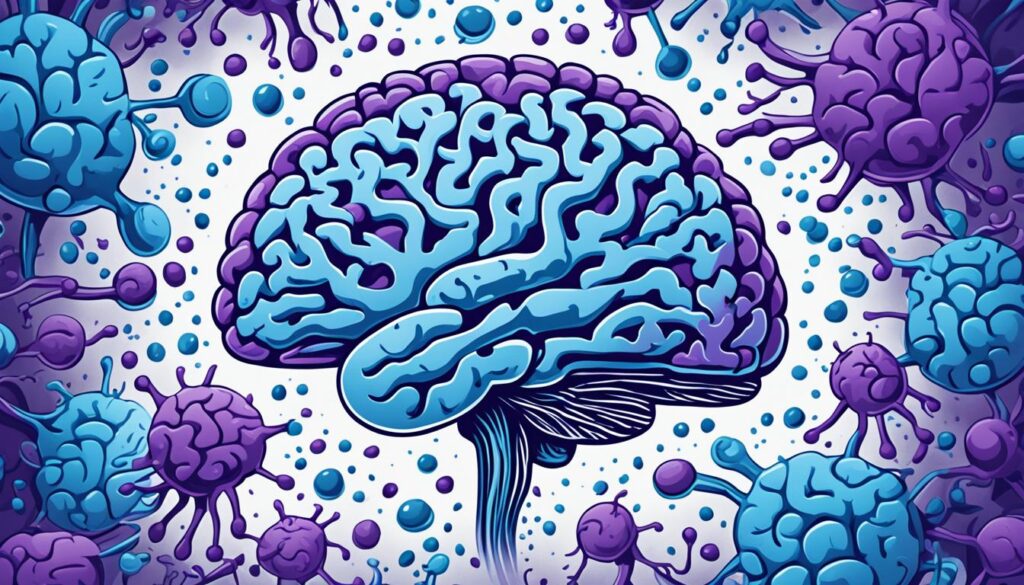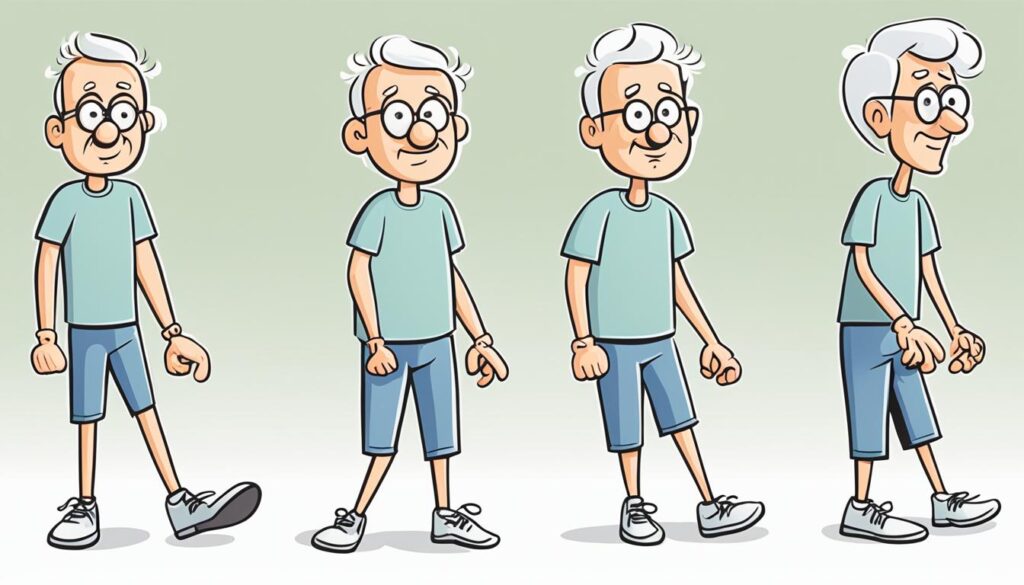Welcome to the first section of our article on Dandy Walker Syndrome. In this section, I will discuss the symptoms of Dandy Walker Syndrome in adults. It is crucial to understand these symptoms and their impact on individuals’ daily lives.
Dandy Walker Syndrome is a neurological condition that can affect adults. While it is typically diagnosed in childhood, some individuals may not receive a diagnosis until later in life. The symptoms experienced by adults with Dandy Walker Syndrome can vary, and it is important to recognize and address them for appropriate support.
Table of Contents
ToggleUnderstanding Dandy Walker Syndrome
Dandy Walker Syndrome is a complex neurological condition that affects individuals from birth. It is characterized by abnormal brain development that primarily impacts the cerebellum. To better comprehend the experiences of adults with Dandy Walker Syndrome, it is essential to have a foundational understanding of the condition itself.
The cerebellum is responsible for coordinating movement, maintaining balance, and other essential functions. In individuals with Dandy Walker Syndrome, this region of the brain may be underdeveloped or malformed, leading to a range of symptoms that can vary in severity.
While Dandy Walker Syndrome is typically diagnosed in infancy or childhood, it can persist into adulthood. It is important to note that the symptoms and their severity may change over time, and each individual’s experience with the syndrome may differ.
Adults with Dandy Walker Syndrome may encounter challenges in various aspects of their lives, including mobility, cognition, communication, and social interactions. It is crucial to recognize and address these symptoms to provide appropriate support and care.
Throughout the following sections, we will delve deeper into the specific symptoms that adults with Dandy Walker Syndrome may experience and how these symptoms can impact their everyday lives. By gaining a comprehensive understanding of the syndrome and its effects, we can work towards creating a more inclusive and supportive environment for individuals with Dandy Walker Syndrome.

Common Symptoms of Dandy Walker Syndrome in Adults
Adults with Dandy Walker Syndrome may experience a range of symptoms that can vary in severity and presentation. These symptoms can affect both physical and neurological aspects of daily life, impacting an individual’s overall well-being and functionality.
Physical Symptoms
The physical symptoms of Dandy Walker Syndrome in adults often include:
- Abnormalities in gait and coordination, leading to difficulties with balance and stability
- Muscle weakness and decreased muscle tone
- Tremors or involuntary movements
- Spasticity or stiffness in the muscles
- Problems with fine motor skills, such as gripping objects or manipulating small items
Neurological Symptoms
In addition to the physical manifestations, adults with Dandy Walker Syndrome may also experience various neurological symptoms, including:
- Intellectual disabilities or learning difficulties
- Speech and language impairments
- Seizures
- Visual impairments
- Hearing loss or auditory processing issues

It is important to note that the severity and combination of symptoms can vary from person to person. Some individuals may experience mild symptoms that have minimal impact on their daily lives, while others may face more significant challenges requiring comprehensive support and accommodations.
Understanding these common symptoms is crucial for individuals with Dandy Walker Syndrome, as well as their healthcare providers, caregivers, and support networks. By recognizing and addressing these symptoms, appropriate interventions and strategies can be implemented to enhance the quality of life for those living with Dandy Walker Syndrome.
Impact on Everyday Life
Living with Dandy Walker Syndrome can profoundly impact various aspects of an individual’s everyday life. The symptoms associated with this condition can significantly affect mobility, cognition, communication, and social interactions. Let’s explore these areas in more detail:
Mobility
Dandy Walker syndrome symptoms in adults can result in difficulties with coordination, balance, and motor skills. Depending on the severity of the condition, individuals may experience challenges with walking, fine motor tasks, or activities that require precise movements. Physical therapy and assistive devices can play a crucial role in improving mobility and enhancing independence.
Cognition
Adults with Dandy Walker Syndrome may experience cognitive impairments that impact their ability to think, learn, and process information. This can manifest as difficulties with attention, problem-solving, organization, and memory. Establishing routines, providing cognitive supports, and engaging in cognitive rehabilitation therapies can help individuals navigate cognitive challenges more effectively.
Communication
Communication difficulties can also arise in individuals with Dandy Walker Syndrome. Some individuals may experience challenges with speech production, language comprehension, or social communication skills. Speech therapy and augmentative and alternative communication (AAC) strategies can assist individuals in overcoming communication barriers and enhancing their interpersonal interactions.
Social Interactions
The impact of Dandy Walker Syndrome on social interactions can vary from person to person. Some individuals may face challenges in understanding social cues, initiating and maintaining conversations, or engaging in social activities. Social skills training and participation in support groups or community programs can provide opportunities for individuals to build social connections and develop meaningful relationships.
It is important to recognize that individuals with Dandy Walker Syndrome may have unique strengths, abilities, and interests alongside their challenges. By providing appropriate support and accommodations, we can help individuals with Dandy Walker Syndrome lead fulfilling lives and overcome the barriers they may encounter.

Conclusion
Understanding the symptoms of Dandy Walker Syndrome in adults is crucial for both individuals living with the condition and their caregivers. By recognizing and addressing these symptoms, we can provide the appropriate support and interventions necessary to enable individuals to lead fulfilling lives despite the challenges posed by the syndrome.
It is important to remember that symptoms of Dandy Walker Syndrome can vary from person to person. Some individuals may experience physical difficulties such as trouble with coordination and balance, while others may face challenges related to cognitive functions such as learning and memory.
By being aware of these symptoms, we can ensure early intervention and access to necessary therapies and treatments. This can help improve the overall quality of life for individuals with Dandy Walker Syndrome, enabling them to achieve their full potential and participate fully in their communities.
FAQ
What are the symptoms of Dandy Walker Syndrome in adults?
What is Dandy Walker Syndrome?
How does Dandy Walker Syndrome impact adults?
How does Dandy Walker Syndrome affect everyday life?
What can be done to support individuals with Dandy Walker Syndrome?

Best Neurologist Doctor In Patna: Dr Chandril Chugh Dedicated to Your Well-being
Dr.Chandril Chugh is a neurologist who trained and practiced in the USA for more than a decade. He is compassionate and caring and is most well known for being a patient listener and spending ample time with patients.
